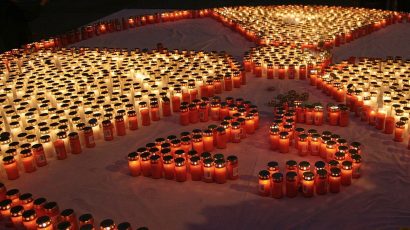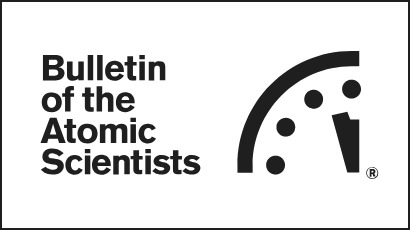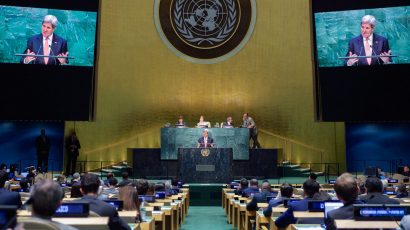Search results for
A message from Tripoli, Part 2: How Libya gave up its WMD
Second installment of a series on on how Libya was persuaded to relinquish its weapons of mass destruction
2011: Chernobyl 25 years later: Many lessons learned
The former leader of the Soviet Union reflects on the nuclear radiation accident that happened on his watch.
Into thin air: The story of Plutonium Mountain
Former Los Alamos National Laboratory director Siegfried Hecker details one of the world’s great nonproliferation stories—the effort to secure the Semipalatinsk Test Site in Kazakhstan.
Crisis management: A good lesson to learn?
Last month three terror attacks once again struck Mumbai, killing approximately 25 people. The attacks turned out to be the doing of an India-based Islamist outfit, the Indian Mujahedeen, and did not involve Pakistan-based Islamist militants.
In the media coverage since, terrorism experts on South Asia have posited that this attack was not a decisive shift in Islamist terrorism in India -- their argument, instead, was that Pakistan-based militants, increasingly autonomous in their operations, still remain the most likely source of a large-scale attack on Indian soil.
The inadequate US response to a major security threat: Climate change
Over recent decades, the United States has dedicated enormous resources -- in terms of money, manpower and national credibility -- to reducing the threat posed by weapons of mass destruction, terrorism, and the global economic crisis. These commitments have been made not necessarily because the potential dangers are expected to materialize often -- many of them are low-probability risks -- but because the consequences if they do are so large as to be considered unacceptable.
Gimme shelter: The need for a contemporary civil defense program
Of the 15 terrorism and natural disaster scenarios used by the Department of Homeland Security for planning purposes, the first scenario is the most feared: Terrorists detonate a 10-kiloton improvised nuclear device at ground level in the National Mall in Washington at 10 a.m. on a weekday morning.
The persistence of the radioactive bogeyman
Since 1950, a remarkable number of American and European horror movies have used radiation as a central plot device. It is a rich, if not distinguished, history. In fact, it is a mostly miserable history, full of bad production values, bad plots, and bad acting. But that doesn’t mean these radioactive B-movies are unimportant. They reflect the fears and misconceptions of their era as they relate to scientific advances—and scientific arrogance.
No, it is not time to ditch the NPT
It would be reckless to throw away the only treaty that commits the major nuclear powers to work toward disarmament. Rather than eroding the NPT, here’s how we can strengthen it.
An Interview with Pavel Podvig
How have U.S.-Russian relations changed in the post-Cold War era?
Not as much as they should have changed. The Cold War confrontation had ideological and historic roots that are irrelevant today for either Russia or the United States. Unfortunately, however, the inertia of the Cold War has proved difficult to overcome, and the notion that nuclear weapons somehow contribute to national security persists.
Teaching biosecurity
In his keynote address delivered at the International Conference on Science and International Security: Addressing the Challenges of WMD Proliferation and Terrorism in Madrid on November 9, Sen. Richard Lugar, Republican of Indiana, stressed the need to expand the 20-year-old Nunn-Lugar Cooperative Threat Reduction (CTR) Program, which he and former Sen. Sam Nunn, Democrat of Georgia, developed in 1991 to secure and destroy nuclear, chemical, and biological weapons in the former Soviet Union.
The Trident Dispatches No. 3: Tony Blair’s forgetfulness
Two years ago, in an almost simultaneous policy turnaround, British Prime Minister Tony Blair expressed his determination to develop both a further generation of nuclear weapons and a host of new nuclear power plants--ideally before he left office. Though he made his personal preference (a staunch yes) clear in both cases, he and his government promised open debate and consultations that would involve "the wider public."
Steven Pinker: Real risks, undeniable progress
Harvard psychologist Steven Pinker’s most recent book, Enlightenment Now, makes a detailed, data-driven argument that the world has indeed gotten better and can get better still. But what of the catastrophic risks that nuclear war and climate change pose to human progress? Here, in conversation with Bulletin senior editor Lucien Crowder, Pinker addresses those risks—and also addresses his published, highly pointed criticisms of the Bulletin’s signature Doomsday Clock.
Modest but meaningful steps to prevent proliferation in Turkmenistan
This five-year plan to address security gaps in Turkmenistan starts with a better-trained border patrol and adoption of European Union export controls.
International anti-money laundering reforms and Iran
An intergovernmental body that promotes international anti-money laundering and counter-terrorism financing standards just kicked the can down the road when it comes to Iran. Which may not be such a bad thing, depending on your perspective.
The very small Islamic State WMD threat
Fears that terrorists could get and use nuclear, chemical, or biological weapons are overblown
The Bulletin welcomes 2024 board fellows
The Bulletin is thrilled to welcome its 2024 board fellows, Giovana Rodrigues Manfrin and Reja Younis. As board fellows, these women will contribute to the Bulletin’s board work, while “pulling back the curtain” on the regular workings of a governing board.
- « Previous
- 1
- …
- 13
- 14
- 15









